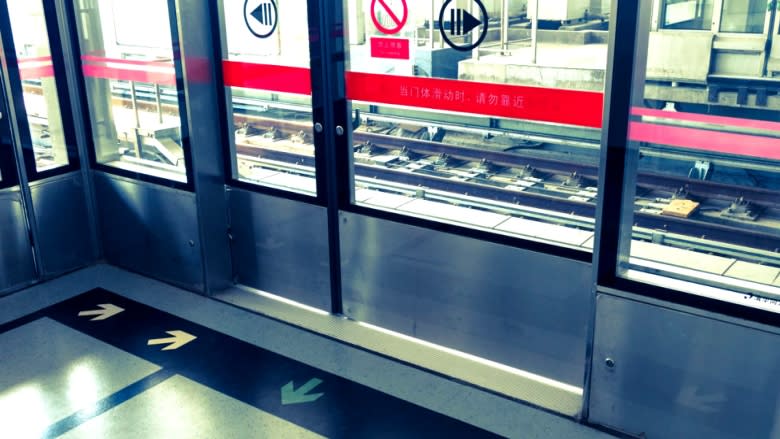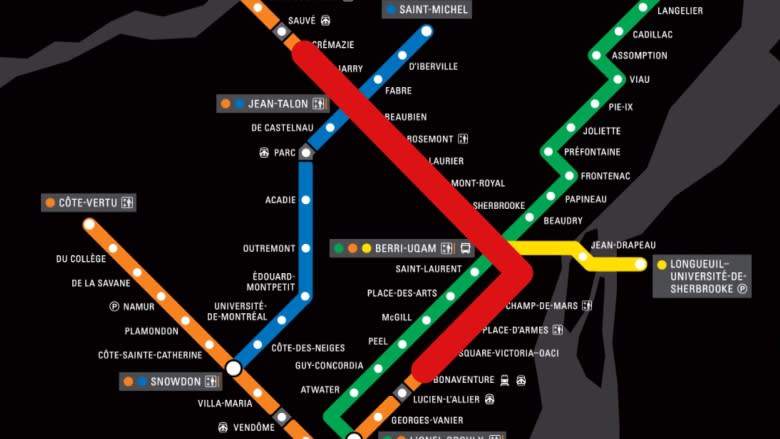STM to launch study into protective barriers on Metro platforms
Montreal's public transit authority (STM) will launch a study next year into protective barriers it says will prevent people from entering the Metro tunnels, and objects from falling onto the tracks.
The move comes as the Metro's long-awaited Blue Line expansion draws nearer. The STM says once those stations are complete, there will be an increase in ridership and platforms on the Orange Line will become more crowded than usual.
A researcher at the Université du Québec à Montréal says the barriers, called platform screen doors, are also one of the most effective ways to prevent metro suicides.
"When [people] can't access the methods they were thinking about, it kind of stops their unraveling," said Cécile Bardon, a researcher who specializes in suicide.
"It forces them to think again. That gives [bystanders] the breathing space where [they] can act."
About four years ago, Toronto's board of health unanimously recommended that its transit authority, the Toronto Transit Commission, install the barriers — but they weren't installed, in part for financial reasons.
The sliding doors exist in Beijing, Shanghai, Paris, Tokyo and London.
High price tag a deterrent
The STM is set to conduct a feasibility study for the barriers at 13 stations on the Orange Line, between Crémazie and Bonaventure stations.
The STM considered installing barriers before, but abandoned the idea because of the high price tag, Radio-Canada reported.
In the past, the estimated cost was between $10 and $15 million per station. The STM won't say exactly how much they think it will cost this time around.
With files from CBC's Navneet Pall
Where to get help:
Canada Suicide Prevention Service: 1-833-456-4566
In Quebec (French): Association québécoise de prévention du suicide: 1-866-APPELLE (1-866-277-3553)




